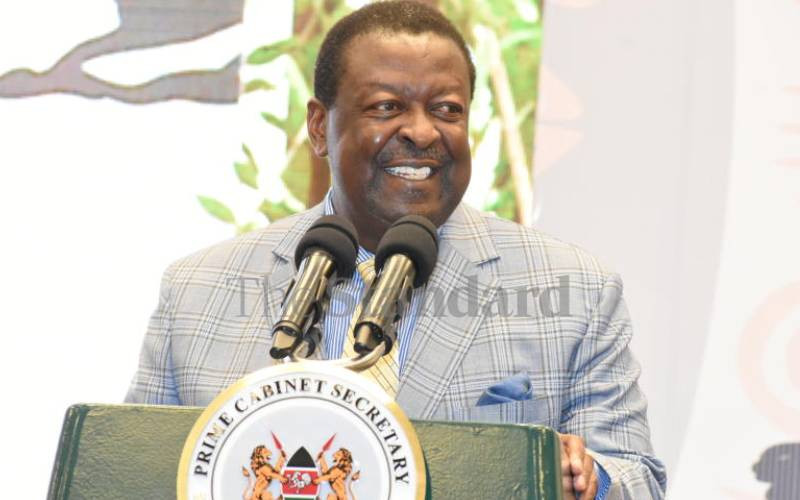×
The Standard e-Paper
Join Thousands Daily

Prime Cabinet Secretary Musalia Mudavadi has assured that Kenya will remain an active agent in addressing climate change.
Mudavadi regretted that climate change is a hindrance to attaining food security.